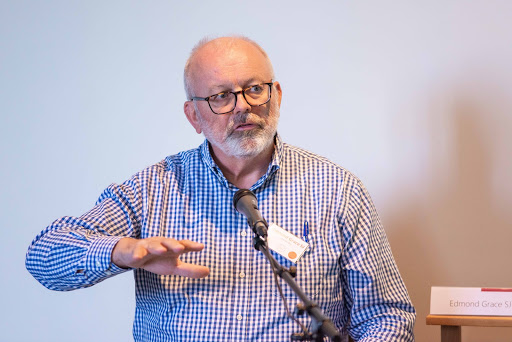
The call of Jesus at the end of the gospel is to preach ‘to all nations.’ This phrase is to be found in Matthew, Mark and Luke. Why were those words – ‘all nations’ – so important? Why did he not say ‘to all people’? Why the plurality? In recent times a ‘nation’ has come to mean something quite specific, which was certainly not the case in Jesus time but there is one aspect of nationhood which was as true then as it is now. Nationhood reflects the diversity of humanity as something to be celebrated.
Every nation, both in ancient times and now, has a distinct story to tell. Very often it is a story of conflict with other nations – and of oppression. There is something in human nature which longs to be recognised as having a distinct identity associated with a particular place on the earth – a homeland. One thing which the stories of the nations in our time have in common is a love of freedom and a sense of solidarity. Today, as in ancient times, a nation also gives people a sense of identity to be celebrated in language, music, sport and food. The most typical attribute of nationhood in our time is that it has served as a receptacle for democratic government.
Pope Francis, in Laudato Si’, speaks about how decision making must reflect the varied local situations and cultures throughout the world. He also protests against the standardisation which is so much a feature of consumerism. The only way to counter this standardisation is through a respect for stories. He argues that, if we are to challenge the global dominance of wealth in our time, we will need globally effective international institutions. He is also clear that this can only be brought through democratic nation states sharing sovereignty. It’s hard to imagine any other kind of state sharing sovereignty!
At present there are many who hold power within the nations of the earth – including the democratic nations – who resist this sharing of sovereignty. This bad short-sighted leadership of nations makes it impossible to do what needs to be done to protect our common home. Nations, like persons, can take the wrong path. A nation can turn itself into a fortress, finding its own identity in a hatred for others. This is a betrayal of nationhood and humanity. When Christ spoke of preaching the gospel to ‘all nations’ he was telling us that we are not a gathering of monads. Each one is unique and part of that amazing collection of stories of which nationhood has always been a sign.
Editorial by Edmond Grace SJ
JESC Secretary for Ecology

